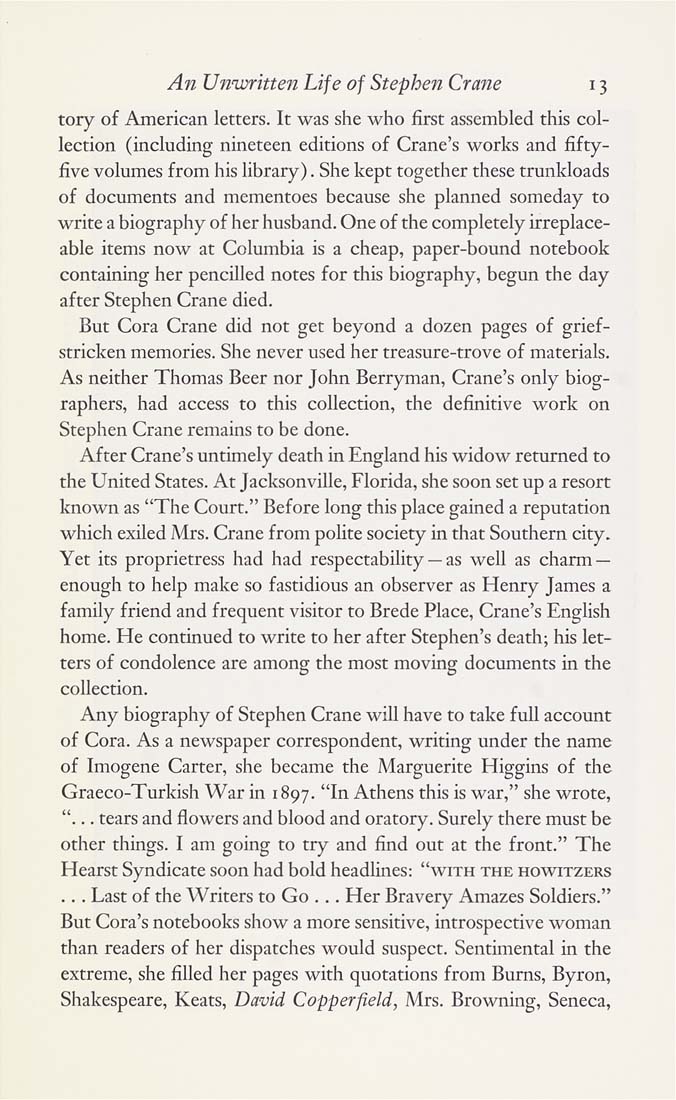Columbia Library columns (v.2(1952Nov-1953May))
(New York : Friends of the Columbia Libraries. )
|
||
|
|
|
|
| v.2,no.2(1953:Feb): Page 13 |

A?i Unwritten Life of Stephen Crane 13 tory of American letters. It was she who first assembled this col¬ lection (including nineteen editions of Crane's works and fifty- five volumes from his library). She kept together these trunkloads of documents and mementoes because she planned someday to write a biography of her husband. One of the completely irreplace¬ able items now at Columbia is a cheap, paper-bound notebook containing her pencilled notes for this biography, begun the day after Stephen Crane died. But Cora Crane did not get beyond a dozen pages of grief- stricken memories. She never used her treasure-trove of materials. As neither Thomas Beer nor John Berryman, Crane's only biog¬ raphers, had access to this collection, the definitive work on Stephen Crane remains to be done. After Crane's untimely death in England his widow returned to the United States. At Jacksonville, Florida, she soon set up a resort known as "The Court." Before long this place gained a reputation which exiled Mrs. Crane from polite society in that Southern city. Yet its proprietress had had respectability — as well as charm — enough to help make so fastidious an observer as Henry James a family friend and frequent visitor to Brede Place, Crane's English home. He continued to write to her after Stephen's death; his let¬ ters of condolence are among the most moving documents in the collection. Any biography of Stephen Crane will have to take full account of Cora. As a newspaper correspondent, writing under the name of Imogene Carter, she became the Marguerite Higgins of the Graeco-Turkish War in 1897. "In Athens this is war," she wrote, "... tears and flowers and blood and oratory. Surely there must be other things. I am going to try and find out at the front." The Hearst Syndicate soon had bold headlines: "with the howitzers .. . Last of the Writers to Go . .. Her Bravery Amazes Soldiers." But Cora's notebooks show a more sensitive, introspective woman than readers of her dispatches would suspect. Sentimental in the extreme, she filled her pages with quotations from Bums, Byron, Shakespeare, Keats, David Copperfield, Mrs. Browning, Seneca, |
| v.2,no.2(1953:Feb): Page 13 |







